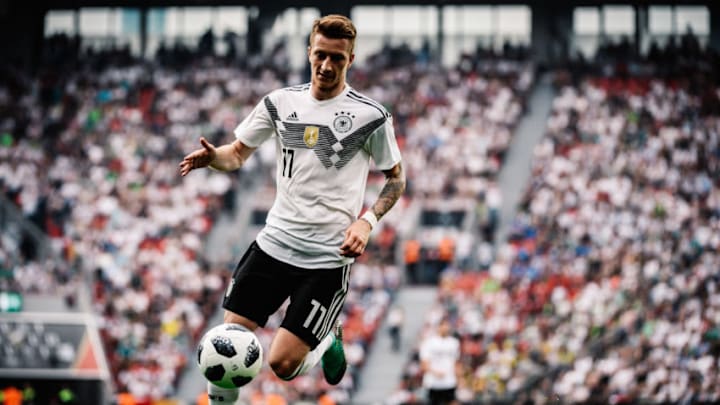The 2018 World Cup features more legitimate challengers than any in recent memory, and the favorites look better than ever.
Gary Lineker famous words about Germany have become cliche since they were first uttered 28 years ago. A jibe with a wry smile, the former England striker made the remark in despair, having just been knocked out of the 1990 World Cup by Die Mannschaft. But his words also served to underline how Germany’s greatest strength in international soccer is so often lasting longer than everyone else. Standing while the competition falls.
So it proved at the 2014 World Cup, when Joachim Low’s side tasted glory at the Maracana. Germany were by far and away the best team four years, blowing away the competition, most notably the hosts Brazil in the semifinals. The competition, however, wasn’t all that stiff. As they often do, Germany lasted longest.
This time, Low’s player will have more of a fight on their hands. The field will be stronger at this World Cup, with as many as 10 nations in with a chance of going all the way in Russia this summer. It can be difficult to avoid excitable hyperbole this close to a World Cup. Nonetheless, it’s possible a tournament for the ages could be upon us.
Of course, this World Cup arrives amid a cloud of controversy over politics, racism, hooliganism and the award of the tournament to Russia in the first place. Some will understandably find it tough to detach themselves from the cultural zeitgeist around the tournament and simply enjoy the soccer for what it is. But from a purely sporting standpoint, there will be plenty to savor over the next six weeks.
The frontrunners — Brazil, France, Germany and Spain — are as strong as any set of favorites in recent memory. All four boast world class players in almost every position, from front to back, left to right. Four years ago, Brazil were burdened with the crippling expectation of the host nation, with their team among the worst in the country’s history. Now, they take their best side in a generation to the World Cup this summer.
France also boast a historically strong squad. While England manager Gareth Southgate fretted over whether to take injury-prone Jack Wilshere and gaffe-prone Joe Hart, Didier Deschamps was forced to leave the likes of Alexandre Lacazette, Adrien Rabiot and Anthony Martial at home. Euro 2016 finalists, Les Bleus are expected to go one better this time.
Then there’s Germany and Spain, the two nations who have defined this era of international soccer. Their dominance could extend to another major tournament. But even beyond these four, there is depth at this World Cup. Take Portugal, for instance. Few expect them to be among the primary challengers this summer despite the fact they are reigning European champions fronted by the incumbent Ballon d’Or holder, Cristiano Ronaldo.
Argentina have the other half of soccer’s great individual pairing, Lionel Messi. La Albiceleste only just scraped through qualification, making it to Russia by virtue of a Messi hat-trick in their final group game. If they’re to win the World Cup this summer, the playmaker will have to be at his very best. If he can drag them to the trophy, Messi will take his place among the soccer gods, pulling up a seat next to Diego Maradona.
Next: The best player on every team at the World Cup
Belgium travel to Russia with a golden generation. On paper, they’re just as strong as any other side, the only real doubts about them a result of Roberto Martinez’s struggles finding a shape and system to get the best from his world-class players, especially at the back. England, on the other hand, are between generations. Their squad is one of the youngest England has ever taken to a major tournament. Not so much Three Lions, but cubs. They might still have some bite, though, with the usual crippling expectations mostly absent.
Croatia, Uruguay, Colombia, Egypt, Poland, Iceland and a few others will also be hoping to make an impression in Russia. The quality will be deep at the 2018 World Cup and from that quality will surely come history, drama and spectacle. As per Lineker’s prescient words, 22 men might well chase a ball for 90 minutes before Germany win, but this time it might take more than simply outlasting the opposition.
